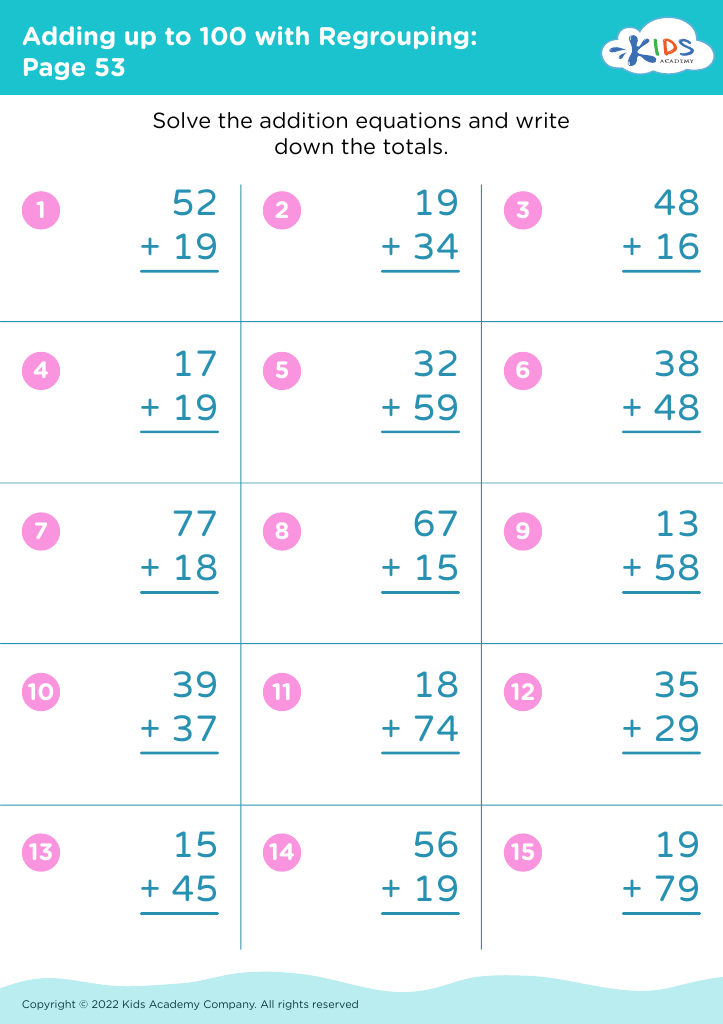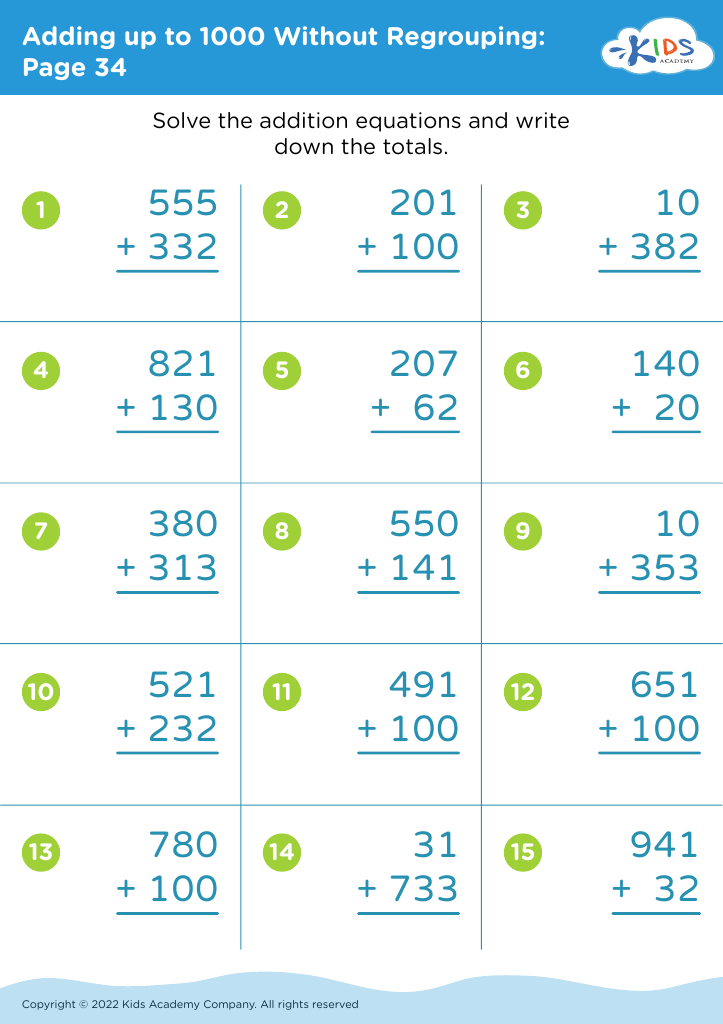Improve problem-solving Addition Worksheets for Ages 5-9
4 filtered results
-
From - To
Discover our engaging "Improve Problem-Solving Addition Worksheets" designed for children aged 5 to 9. These resources focus on enhancing young learners' addition skills while developing their problem-solving abilities. Our worksheets incorporate colorful visuals and fun scenarios to make math enjoyable, encouraging critical thinking and logical reasoning. Each exercise promotes a hands-on approach, helping kids understand the relevance of addition in real-life situations. Ideal for both classroom use and homeschooling, these worksheets will support your child in mastering addition concepts with confidence and ease. Explore our collection today to help your child excel in math and nurture their analytical skills!
Improving problem-solving skills in addition for children aged 5-9 is crucial for several reasons. At this developmental stage, children are forming the foundational mathematical skills that they will build upon throughout their education. Mastering addition is not just about number crunching; it’s a springboard for critical thinking and logical reasoning.
By enhancing problem-solving abilities, teachers and parents foster a deeper understanding of mathematical concepts. This helps children learn how to think critically about different problems, encouraging them to find multiple solutions and approaches, which closes gaps in their knowledge. Additionally, strong addition skills lead to greater confidence in math, reducing math anxiety and empowering them to tackle more complex subjects in the future.
Furthermore, integrating practical real-life scenarios into problem-solving promotes engagement and relevance, making learning more enjoyable. Consequently, students become more motivated and interested in mathematics, which can translate into long-term academic success. Also, these skills lay the groundwork for future competencies in STEM fields, which are vital in today’s technology-driven world. Therefore, teachers and parents should prioritize developing these skills to support children's growth not just academically, but also in their personal decision-making and critical thinking capacities.





















